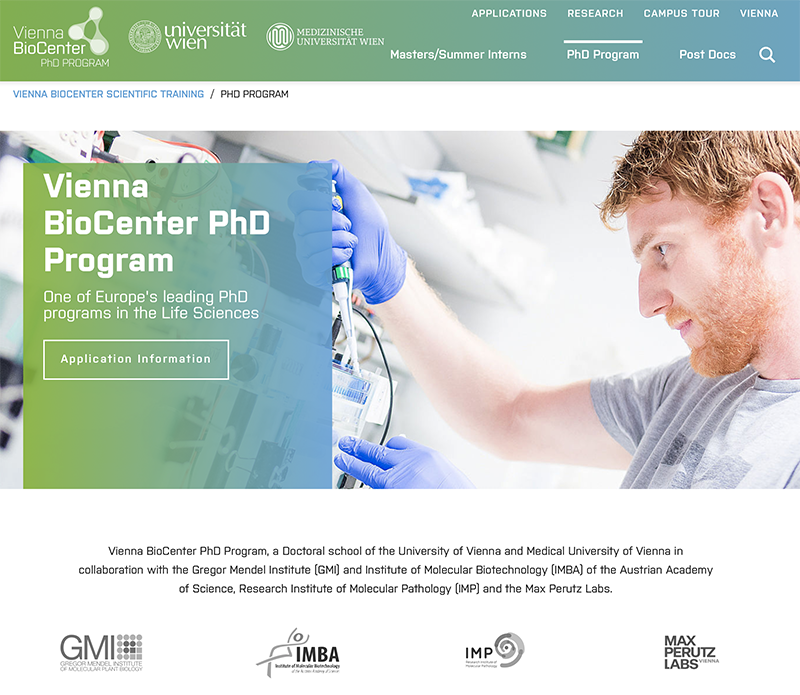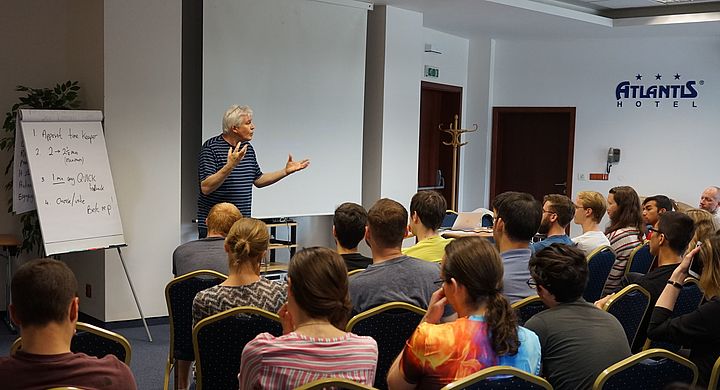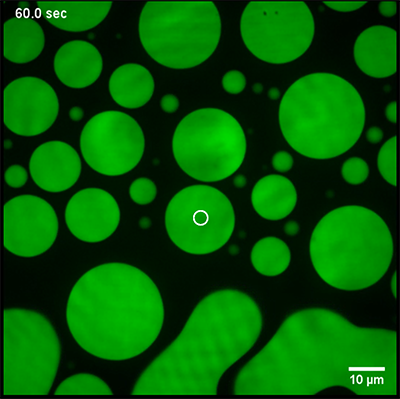Training

The VBC Doctoral School unites the track record and visibility of the MFPL PhD program, started in 2009 and consolidated as Doctoral School “Molecules of Life” in 2016, and of the VBC PhD program, of one of the oldest and most prestigious PhD programs in Europe. The School is run by GMI, IMBA, IMP and Max Perutz Labs, with the degree awarded jointly by UW and MUW. All ELLIPSE students will obtain their PhD via the VBC Doctoral School except the student of SK who will be formally enrolled in Vienna Doctoral School in Physics, while following the same curriculum as other ELLIPSE students.
Content of education and training program
All VBC PhD students must complete a core curriculum, while the specific training aims of ELLIPSE will be completed through a series of additional courses as presented below. All courses and official communication in VBC Doctoral School/ELLIPSE are carried out in English.
VBC Core Curriculum
The key part of the VBC core curriculum is a 3-week “Priming your PhD introductory course” (10 ECTS), to be taken at the beginning of PhD studies. The purpose of this multi-faculty course is to prepare students for a PhD career by: 1) expanding their scientific reasoning skills (evaluating & integrating scientific literature and data, including statistics, and improving their understanding of different technologies), 2) developing their written and oral communication skills, 3) raising their awareness of research integrity and good scientific practice. Furthermore, students must attend weekly seminars where each student presents their work for entire VBC community approximately twice during their PhD (1 ECTS/semester). Importantly, the ELLIPSE-specific courses and work-in-progress seminars deepen the core curriculum significantly, as further described below.
ELLIPSE-Specific Curriculum
The centerpiece of the ELLIPSE curriculum will be a newly designed two-semester course “Theory, Computation and Experiment in the Study of Liquid-Liquid Phase Separation Phenomena in Biology” (6 ECTS). Taught by all of the ELLIPSE faculty, the course will provide a foundation for the students for LLPS research and collaboration. The critical part will be creating a unified language and a common knowledge base in which relevant concepts and tools from soft-matter physics and computational modelling will be integrated with a detailed understanding of structural biology, biochemistry and cell biology related to LLPS. While particular lectures will be given by experts on the topic at hand, the peculiarity of the course will be in that all ELLIPSE faculty will be encouraged to attend all the lectures as participants. The LLPS field demands a close integration of different approaches and a significant extension outside one’s comfort zone, even for the most experienced practitioners. In this way, we hope to contribute most directly to this integration. Second, depending on their profile and project needs, the students choose from a rich list of elective courses at UW and MUW.
Resources and infrastructure
The ELLIPSE groups are excellently equipped for molecular and cell biology research at all levels through both institutional resources and VBCF. The available equipment for biophysical characterization of macromolecules include: CD spectrometers, DS and IT calorimeters, a dynamic light scattering spectrometer, thermofluor, a multi-angle light scattering spectrometer, a stopped flow spectrometer, a ps-fluorescence lifetime spectrometer, a ns-transient absorption spectrometer and a fluorescence correlation spectrometer. High-resolution structural analysis Both Perutz Labs and IMP have state-of-the-art, in-house suites for X-ray structure determination (high-throughput nanodrop crystallization and multi-purpose liquid handling robots, X-ray high-brilliance rotation anode generators equipped with cryo-cooling systems, CCD and IP detectors and automated crystal farms). In addition, groups have long-term access to major European synchrotron high-brilliance X-ray sources (e.g. ESRF, EMBL-Hamburg, Diamond, BESSY). Finally, Perutz Labs have three high-field (800, 600 and 500 MHz) NMR spectrometers equipped for molecular biology. Equipment for molecular microscopy The VBCF EM facility houses four transmission electron microscopes and has arranged for its users access to a high-end cryo-Titan Instrument at IST Austria. Computing infrastructure Available infrastructure consists of several high-performance computing clusters and servers with diverse software. Also, access to Vienna Scientific Cluster (>40,000 cores) is directly available to ELLIPSE researchers. Mass spectrometry The VBCF mass spectrometry facility offers access to a state-of-the-art MALDI-TOF/TOF instrument (ABI 4800) and on-line ESI ion traps. Also, all groups have access confocal microscopy, cell sorting, proteomics and genomics facilities. Finally, the campus also provides subsidized child-care accessible to PhD students and faculty alike.








